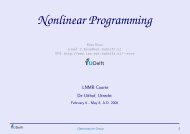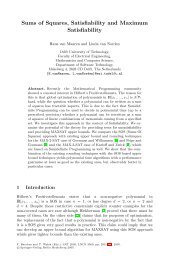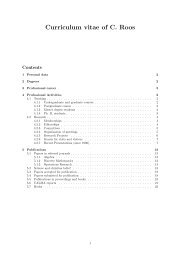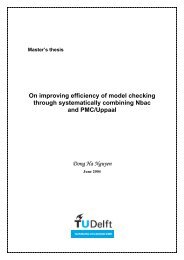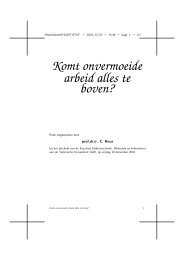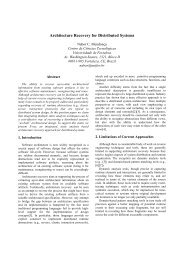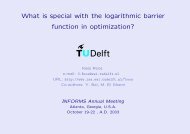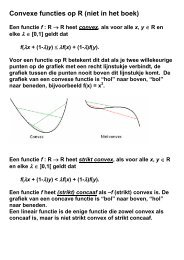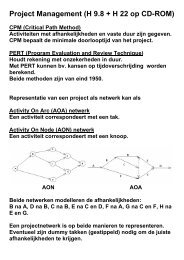Full-Newton step polynomial-time methods for LO based on locally ...
Full-Newton step polynomial-time methods for LO based on locally ...
Full-Newton step polynomial-time methods for LO based on locally ...
Create successful ePaper yourself
Turn your PDF publications into a flip-book with our unique Google optimized e-Paper software.
Local self-c<strong>on</strong>cordancy of the barrier functi<strong>on</strong>We define φ : D → R to be <strong>locally</strong> κ-SC at x ∈ D ⊆ R n if φ(x + th) is κ-SC <str<strong>on</strong>g>for</str<strong>on</strong>g> allh ∈ R n ; to express the dependence of κ <strong>on</strong> x we use the notati<strong>on</strong> κ(x). Clearly φ is κ-SCif and <strong>on</strong>ly if κ(x) is bounded above by some (finite) c<strong>on</strong>stant <strong>on</strong> the domain of φ.It is well known that the classical logarithmic barrier functi<strong>on</strong>—whose kernel functi<strong>on</strong> is t2 −12 −ln t—is SC. But this is quite excepti<strong>on</strong>al. In general kernel-functi<strong>on</strong>-<str<strong>on</strong>g>based</str<strong>on</strong>g> barrier functi<strong>on</strong>sare not SC, but they are <strong>locally</strong> SC. The following table shows this <str<strong>on</strong>g>for</str<strong>on</strong>g> the kernel functi<strong>on</strong>,ψ 2 (t).iterati<strong>on</strong> boundslocal value of κi kernel functi<strong>on</strong> ψ i (t) small-update large-update ψ(t) Φ µ (x)1t 2 −12 − ln t O ( √ ) ( )n lnnǫO n lnnǫ1 1( )2 t −1 2tO ( √ )n lnnǫ?122t √32‖v‖ ∞√3At the start of the algorithm we have v = 1, where the local value of κ is 2/ √ 3. Duringthe course of the algorithm the iterates stay so close to the central path that v stays in a verysmall neighborhood of 1, and hence the barrier functi<strong>on</strong> is SC <str<strong>on</strong>g>for</str<strong>on</strong>g> some suitable value of κ,slightly larger than 2/ √ 3.19



